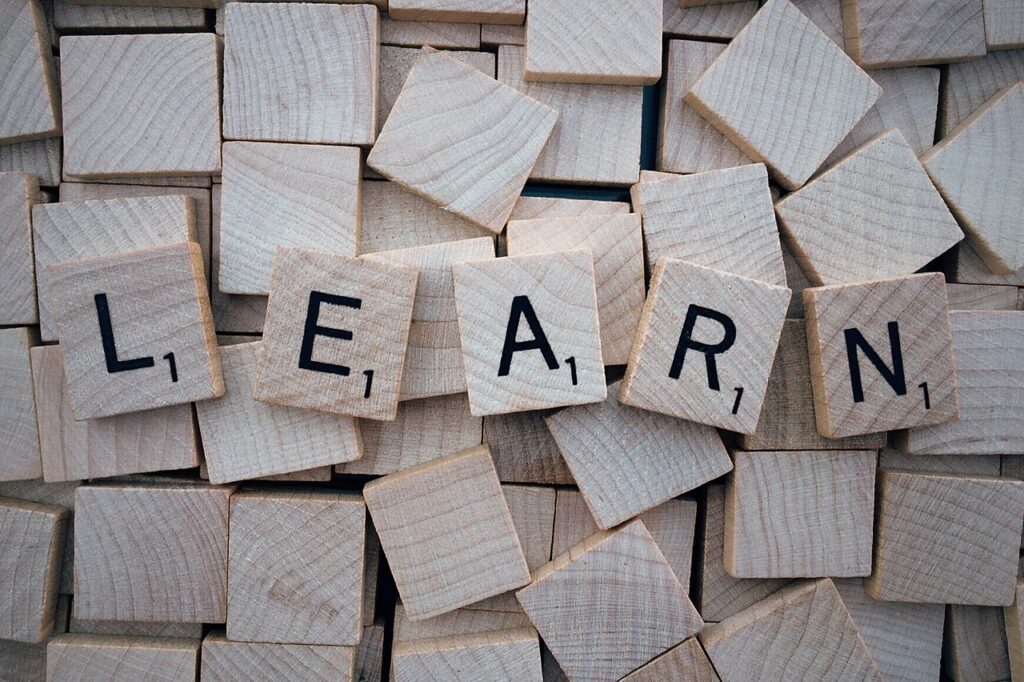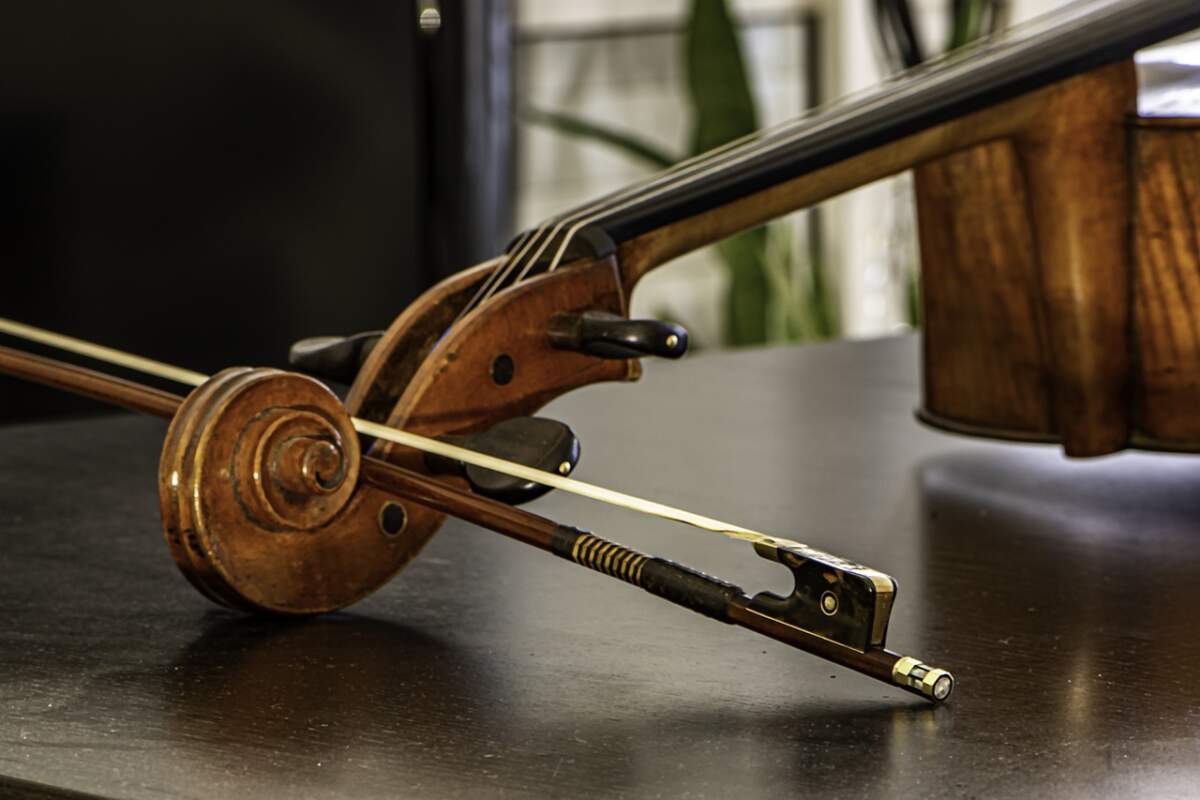Learning to deal with performance anxiety feels impossible when that demon strikes. But it is absolutely manageable with the right tools. These are the elements with helped me overcome severe anxiety.
(And if you prefer to watch the video, check it out below)
Who Suffers from Performance Anxiety?
A lot of people suffer from anxiety. And there are so many different kinds of anxiety. But people who perform on stage often times suffer from what we call, stage-fright, otherwise known as performance anxiety. And when I say performers, I mean ANYONE who performs, whether that is a musician, dancer, or public speaker – ANYONE.
What Does Performance Anxiety Feel like?
Let me paint a picture for you…a picture you may know all too well. Imagine you are on a stage for your performance, and instead of thinking about the performance, all you can think about is getting off that stage and hiding somewhere!
Your heart feels like it’s pumping out of your chest. And somehow, you seem to have forgotten everything you have rehearsed for this moment, and you are NOT performing like you have prepared (even if you thought you were totally prepared) and that fight-or-flight mode kicks in.

This is a problem which must be resolved or you may never gain the courage to perform in front of an audience again.
I know, because performance anxiety nearly ended my career as a cellist.
First, please know that I am not a psychologist or psychiatrist or have any counseling training on anxiety. I am simply going to tell you about this from my personal experience and how I worked through it with the help of a few books as well as through the vast knowledge and support of some of my dearest musical colleagues.
This is info from the collective performance hive I have been a part of for decades.
So what exactly IS performance anxiety?
Performance anxiety is much like any other type of anxiety but it is related to performing in front of an audience.
When it’s happening it feels like self-sabotage cause your brain goes into this negative spin-cycle and it it’s just SO hard to turn it off. It feels a bit crippling.
Why is this happening?
Anxiety happens because we are stressing about the outcome of our performance – because we want the end result to be awesome and we don’t want to mess it up.
The bottom line is that we don’t want to embarrass ourselves – and that’s all we can think about during a performance. We take pride in our reputations.
Whereas what we SHOULD be thinking about (and focusing on) is the music that we’re playing or the words we are saying – right then, right there.
Somehow we get it in our heads that when we perform in front of people, all that work we put in – all those hours rehearsing are going to pay off and then snap – we will play better than we ever have (…which, sorry to break the news to you – will never happen).
When all this negative junk is swimming around in our heads it can potentially bring on a little panic attack while performing. That’s what I’m referring to when I say performance panic.

It happens to a lot of people and you have to learn to manage it on the spot – and you have to learn to manage it for the long-haul.
What is happening in the body during a panic attack?
- When you’re having a panic attack the body is under a lot of stress. The heart rate increases. The heart thumping can be quite intense when you are feeling anxious.
- We might find our hands tremble. When the hands tremble we can’t play a slow, soft, lyrical passage on a stringed instrument without having it sound like a staccato passage.
- When we are anxious we might sweat a bit. And sweaty hands present yet another challenge when performing on a musical instrument.
- Stress often has an effect on our breathing. When we are anxious there can be some shallow breathing going on. We can’t seem to remember to take that full, deep breath.
- Anxiety might even trigger an overly active gut. And you definitely don’t want THAT to happen when you perform.
During an episode of performance anxiety, our body goes into fight-or-flight mode. Your brain is sending a distress signal through your body and activating your autonomic nervous system.
Your body responds by pumping adrenaline, (which is also known as epinephrine), throughout the bloodstream bringing on a number of these not-so-ideal physiological changes.
Once the body has fired up all the stuff we don’t want fired up, we then HOPE that our parasympathetic nervous system kicks in… and quickly.
The parasympathetic nervous system is the system which acts like a brake and tells our body, “Chill out! Calm down!”

My performance anxiety got worse until I figured out what was happening.
For me personally, I had years where I would get on stage and I would literally feel like I was getting sick. These were flu-like symptoms. I would get a light-headed feeling and a hollow-ness in my chest. It felt like I was floating.
But magically, when I would leave the stage I would feel better. And somehow, I NEVER made the connection to what was ACTUALLY going on.
I thought there must be something on that stage I was allergic to.
Maybe something they use to polish the stage floor, or an excess of dust accumulation in those big curtains. I just couldn’t pinpoint it.
Eventually, when I would get on stage, I would start to get panic attacks – or performance panic.
I could feel these attacks come on suddenly during a performance. It’s all dealt with internally because you can’t react when you are on stage! It’s like an explosion coming from the inside.

It felt something was closing in on me and it always seemed like there was this thick, dark black cloud pressing down on me – it’s almost like I could SEE it.
I could feel it on my head and my shoulders, and my hands would shake…And one day during a concert – on stage – with about 3,000 people in the audience (I wasn’t even a soloist, I was sitting in the cello section of a symphony orchestra), I had to quickly move my cello over and put my head between my knees because I needed to get blood going through there quickly.
I was CERTAIN I was about to faint….right there, in front of everyone.

Putting my head between my knees was the better of the two evils. If I HAD fainted on stage, I may have quit performing all together.
On the way home that night, in the parking lot, I was talking to one of our principal players and I described what happened that night on stage and what had been happening to me over the years.
I asked him if he knew of anyone else getting sick from something on stage. He looked at me and calmly stated – “You have performance anxiety.”
“No – No, no I don’t. I don’t have anxiety.” He said, “Yes, you do. You are describing performance anxiety. And I know because I have it too.”
I asked how he played so well and with such confidence onstage. His reply was: “I have learned to manage it.” He did this without medication.
He learned to train his brain.

Wow. That was a real eye-opener for me. But I will admit, I was quite skeptical at first.
Now let’s talk about how to manage performance anxiety.
There are two different avenues when coping with the symptoms of a performance anxiety-induced panic attack.
- One is a short-term management (to use DURING the panic attack).
- The other is a comprehensive, longer term plan for you to focus on for eventual recovery. You need both.
Short Term Management:
I always believe that in a stressful moment, a short acronym will help your brain quickly organize a plan of what it is supposed to do. I created an acronym which works every time.
The acronym to remember, is RISE-UP.
I like this acronym because when I hear those two words together the first thing I want to do is to sit up right and look confident. And that’s a very important part of taking command of your brain!

Let’s break it down:
“R” is for recognize.
You have to recognize that you are having an anxiety moment or a panic attack. It’s not the floor polish or a stroke and you’re not dying… It’s an anxiety induced moment and it’s a temporary thing.
Recognize it: R
“I” is for inhale.
Deep breathe. I kid you not. Breathing is THE thing which keeps your body regulating properly. It’s a mechanical process which brings oxygen into EVERY cell of your body on the inhale!
So this truly is the MOST important trick. Keep reminding yourself that deep breathing supplies oxygen to your brain. Slow, deep breaths. If you try to breath quickly you will compound the problem and probably make it worse!
I – Inhale.
“S” is for self-speak.
Speak positive stuff to yourself. Talk to your mind. Take command. You are in charge.
Things I might say to myself are:
You will be ok.
This will pass.
You can do this.
S is for self-speak. Say positive things.
“E” is for elongate.
Elongate your muscles. Your muscles have a tendency to tighten up when you are stressed. Consciously raise your shoulders then elongate or drop them.
Move your head from side-to-side. Elongate those neck muscles.
E – elongate.
The RISE part of the acronym might be enough for you. But if you need to go further, here’s the rest of the acronym – UP.
“U” is for utopia.
Utopia is a beautiful, happy, positive, perfect place. Get those negative thoughts OUT OF YOUR HEAD!
Be very present in the moment. Think about nothing else but your happy place. Wherever that is, go there.
U – Utopia
“P” is for play or press – or both.
This is especially important for string players.
Play louder while pressing your feet into the ground. Your instinct is to pull way back and hide, but if you press that bow into the string, push those feet down and increase the dynamic level just a notch, somehow that will make you feel more in control – and it will also help you get a more controlled sound.
And keeping your feet consciously planted into the floor – will give you additional power which you need. Even if you are playing a soft passage, you can still bring the volume up a little. I
t’s the better of two evils.
So again as a recap…R I S E. U P.
If you can’t memorize all of the steps, at least remember to “Rise-Up”. You should be in good shape when that anxiety moment arrises.
Now if you perform fairly often and you want to find a way to deal with your performance anxiety for the long haul, there are a few things you can do which will make your physical body in better shape to handle the stress. So let’s talk about the long term plan – or goals.
LONG TERM:
- So the first thing to know about performing well is to BE PREPARED. There is absolutely no substitute for being gloriously prepared. When you really know your music (or your speech), you have confidence. And feeling really confident about what you are presenting is about bringing forward your very best. We all feel good when we bring our best. So, know your stuff!
And on a related note, if you are a musician, be careful not to play music which is above your skill level. I had a teacher who once told me, “It’s not what you play, it’s HOW you play it” No words were ever truer.
It was a throw-down line from him, but it totally stuck with me.
Here’s the link to a blog on effective practice strategies if you need a good plan.

- Do breathing exercises EVERY day. That way, when you need to know exactly how to do it, you will have rehearsed it a zillion times. It helps so much. Breathing exercises consist of taking deep, full breaths often throughout the day. (show)
- Learn YOUR triggers. You have to understand what it is that is causing this anxiety.
For me it was when the lights went down just before we tuned right before concert was to begin.
My other trigger was a very quiet, difficult cello passage (soli). Those two were my biggest triggers but I learned to recognize them so I wouldn’t’ be surprised when they happened.
- Get regular exercise.
This can simply be getting a good, brisk walk in on most days. Get that cardio machine working. It will help everything in your life.
- Nutrition.
We all know that we should follow a diet that is low in added sugar and eat regularly to avoid glucose spikes. Diet effects the gut and the gut feels the effects of anxiety. Anxiety and the gut are tied together.
And you don’t want any gut issues on stage!
Though this next thing is not necessarily a long-term plan, this totally works the day of the performance….eat a ripe banana about an hour before you perform (assuming you have no allergies to this fruit).
- A banana is high in vitamin B and can help calm the nervous system. It’s kind of a natural beta blocker. This is a regular part of my performance routine.
- Avoid caffeine right before a performance, as it may make anxiety worse. And sometimes, it too, it has a negative effect on the gut.

*If you find that anxiety is creeping into other areas of your life, you might consider seeking counseling or other professional help.
*If you find anxiety is crippling you, and you cannot function, there is help out there for you. Please go seek professional help.
And as I mentioned, I’ve worked hard to overcome performance anxiety and I know that these methods work. They will absolutely work if you do them. But you have to actually DO them.
Performance anxiety won’t resolve itself. You have to work on it. And if you do, you’ll be rewarded with an enjoyable, successful performance nearly every time.
I wish you much luck as you work to put yourself in a better mental space during your next performance or your next public speaking event.
If you are looking for some additional resources, please check out “The Bulletproof Musician.” This is an EXCELLENT blog written by the authority, Noa Kageyama.



